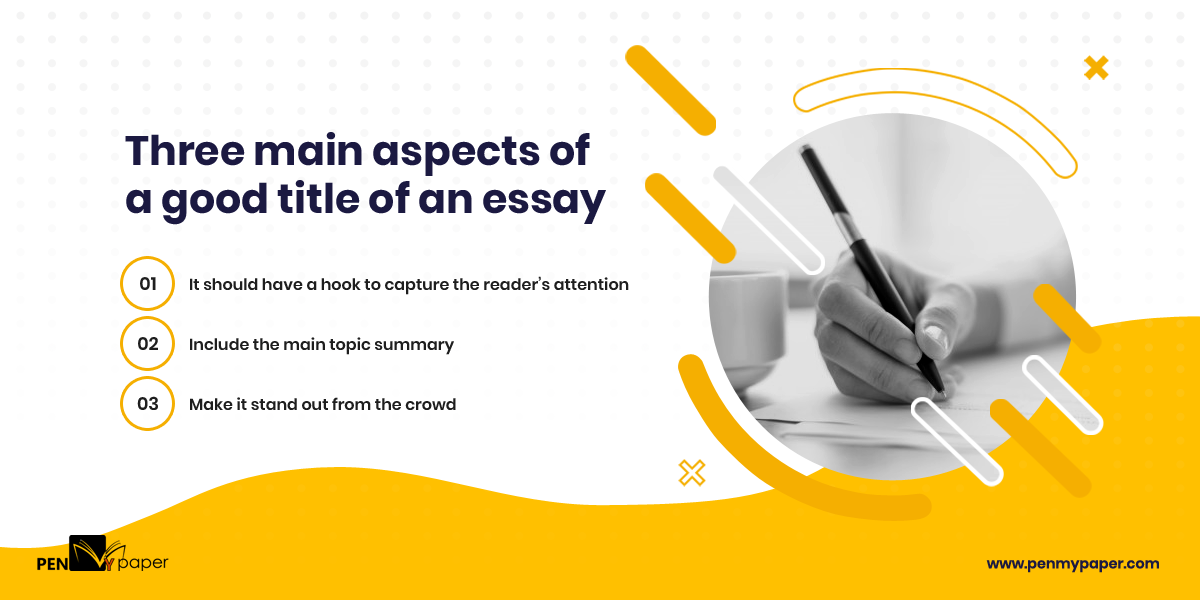How to Title an Essay Perfectly: The Ultimate Guide

Key Highlights:
Have you ever stared at a blank page, wondering what to title your essay or article? Whether you’re a student tackling an assignment or a writer crafting an article, coming up with a unique and eye-catching title can feel like an impossible task. A great title isn’t just a label—it’s the hook that grabs your reader’s attention and makes them want to dive in. But how do you create a title that stands out? That’s where we come in! In this blog, we’ll walk you through the art of titling your essay with expert tips and tricks to ensure your work gets noticed.If you are struggling with this step, you can always seek assistance from a professional write essay service to craft a compelling and effective title.
Why is it Important to Craft a Good Title?
To make your academic essay worth reading, it is crucial to have a clear understanding of what is an essay and to know how to craft an attention-grabbing title while avoiding poorly-titled essays. Titling is considered to be among the most important steps in the essay-writing process. Crafting a great title is essential for any type of written work, be it an essay, article, or book. Here are seven reasons why it is important to create a compelling and captivating title:- Draws the reader’s attention: In a world where we’re bombarded with information, a catchy and attention-grabbing title can make your content stand out. A title that piques the reader’s interest can compel them to click on your article or read your essay.
- Sets the tone for the content: A title can give readers an idea of what to expect from the content. A title sets the tone for the entire piece of writing. It should be reflective of the style and purpose of the work.
- Conveys the content’s theme: A good title should provide a glimpse into the topic or theme that the content covers. This can help the audience determine if the content is relevant to their interests or needs.
- Boosts Search Engine Visibility: Incorporating relevant keywords into your title can help improve the visibility of your content on search engines. This can make it easier for people to find your content when they’re searching for information on a specific topic.
- Enhances the writer’s credibility: A strong and professional title can enhance the writer’s credibility and authority on the subject. A well-crafted title can give readers the impression that the writer is knowledgeable and experienced in the subject matter.
- Provides a sense of direction: A good title can help the reader understand the scope of the content and what they can expect to gain from reading it. This can help the reader decide if the content is worth investing their time in.
- Creates a lasting impression: A memorable title can leave a lasting impression on the reader. It can make the reader remember the content and even share it with others, which can lead to increased exposure and engagement.
What Makes a Great Title – 8 Key Qualities
A great title is an essential part of any piece of writing, from a blog post to a book. It’s the first thing readers see, and this is what hooks them in and makes them want to read more. So, what makes a great title? Here are 8 key points to consider:- Captivating: A great title ought to be captivating; meaning it must capture the interest. What’s the point of writing a title that doesn’t attract the audience, right? It must intrigue readers so that they feel the urge to read your article. However, it must not be too revealing, so carefully choose your words.If you need additional support with your writing, consulting a professional paper writer can help ensure your essay is well-structured and engaging.
- Comprehensive: When we say a good title is comprehensive, it means that the title should be able to encapsulate the essence of the entire piece of writing. It should give an idea of what the writing is about, and this idea should be broad enough to encompass the entire topic, without leaving out any important aspects.
- Clarity: A clear and concise title makes it easy for readers to understand what the piece is about. It helps them to quickly determine whether the content is relevant to their interests and whether they want to read on. A title that is too vague or abstract can be confusing and unappealing, making it less likely that readers will engage with the piece.
- Accuracy: An accurate title is an honest representation of the content, setting the right expectations for the reader. It should not mislead readers as misleading titles can damage the writer’s credibility and lead to reader frustration and disappointment.
- Creativity: A creative and unique title can make a piece stand out from the rest. It can grab the reader’s attention and make them curious to read more. A creative title also displays the writer’s voice and style.
- Tone: The tone of the title should match the tone of the piece itself. This helps to set expectations for the reader and creates a cohesive reading experience. For example, if the piece is humorous, the title should be playful.
- Conciseness: A short and to-the-point title is easier to remember and share. It can also make the piece more approachable and less intimidating for readers who may feel overwhelmed by longer, more complex titles.
- Relevance: A relevant title captures the essence of what the piece is about and why it matters. It helps readers to understand the value of the piece and why they should take the time to read it. A relevant title can also improve search engine optimization (SEO) by incorporating relevant keywords.